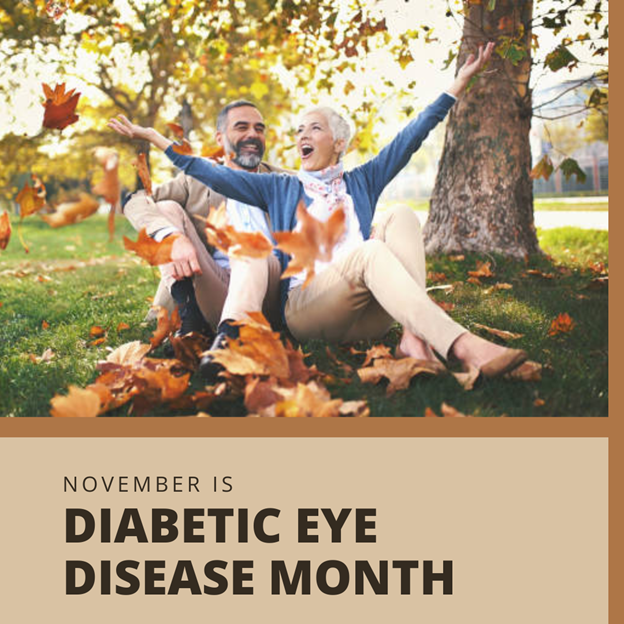Home » Blog » November is Diabetic Eye Disease Awareness Month
November is Diabetic Eye Disease Awareness Month
Posted by: Coastal Eye Associates in Eye Health on November 5

November is not just another month; it’s a significant period for our patients. It’s Diabetes Awareness Month, a time when we all come together to shine a light on this prevalent condition. But did you know it’s also Diabetic Eye Disease Awareness Month, founded in 1998 by Prevent Blindness? This dual focus on prevention is a powerful reminder for patients diagnosed with diabetes. The Centers for Disease Control and Prevention (CDC) reports that diabetes affects about 37.3 million people in the United States. That equates to 1 in 10 people living with diabetes, and about 1 in 5 people with diabetes do not know they have it. Diabetes is the leading cause of preventable blindness in the U.S. among adults ages 20 to 74 and the fifth most common cause of preventable blindness globally.
How Can I Prevent Diabetic Eye Disease?
Diabetes may increase the risk of many health concerns, but vision loss is the most common and preventable. When you have diabetes, you are not just a patient; you are a key player in preventing certain eye diseases, including glaucoma, diabetic retinopathy, and cataracts. The good news is that you can take control and reduce your chances of eye disease, preserving your vision and empowering yourself in the process.
Here are a few steps from the American Academy of Ophthalmology, a trusted source of eye health information, to include within your lifestyle to preserve your vision in the coming years.
For your health and peace of mind, please do not delay your eye health. Take the first step towards preserving your vision by scheduling a Comprehensive Dilated Eye Exam TODAY.
In its early stages, diabetic eye disease often has no symptoms. A dilated eye exam allows your eye doctor to examine the retina and optic nerve more thoroughly for signs of damage before you notice any change in your vision. Regularly monitoring your eyes’ health allows your eye doctor to begin treatment as soon as possible if signs of disease do appear, providing you with reassurance and peace of mind.
Take Control of Your Blood Sugar
When blood sugar is too high, it can affect the shape of the eye’s lens, causing blurry vision, which goes back to normal after blood sugar stabilizes. High blood sugar can also damage the blood vessels in your eyes. However, maintaining good control of your blood sugar can prevent these problems, giving you confidence in your ability to protect your vision.
Keep a Healthy Blood Pressure and Cholesterol Levels
High blood pressure and cholesterol can increase the risk of eye disease and vision loss. Keeping both under control will help your eyes and overall health.
Kick the Habit and Stop Smoking
If you smoke, your risk for diabetic retinopathy and other diabetes-related eye diseases is higher. Giving up tobacco will help reduce that risk.
Exercise for Your Health
Exercise is not just good for your overall health, it’s also beneficial for your eyes. Regular exercise can help your eyes stay as healthy as possible while helping to control your diabetes. So, lace up your shoes, take a walk or bike ride, or have fun being active at the park to enjoy a beautiful fall day and keep your eyes in top shape.
We want our patients to enjoy a high quality of life while managing their diabetes. We are your eye health partners in diagnosing and managing diabetic eye disease. If you have diabetes, even if you are not experiencing eye symptoms, schedule a comprehensive eye exam TODAY to protect yourself from preventable vision loss.
We Make a Great Team with Our Patients!

